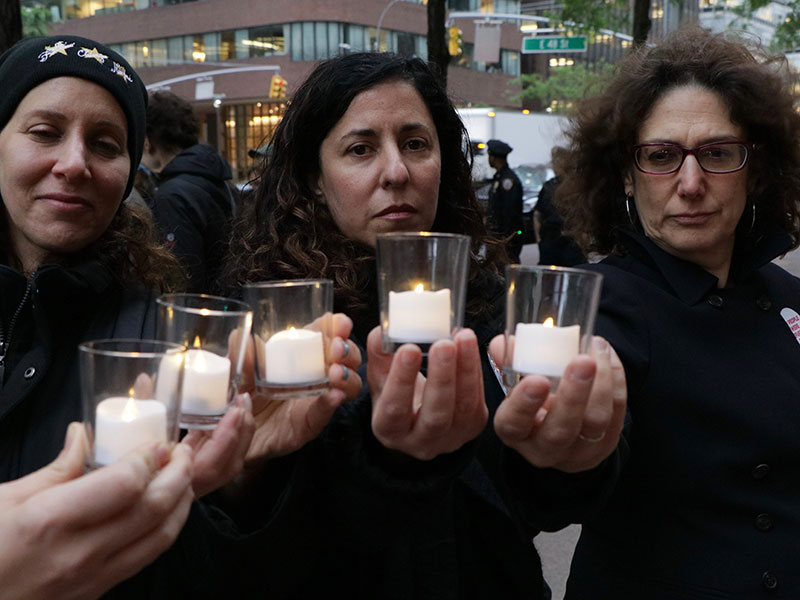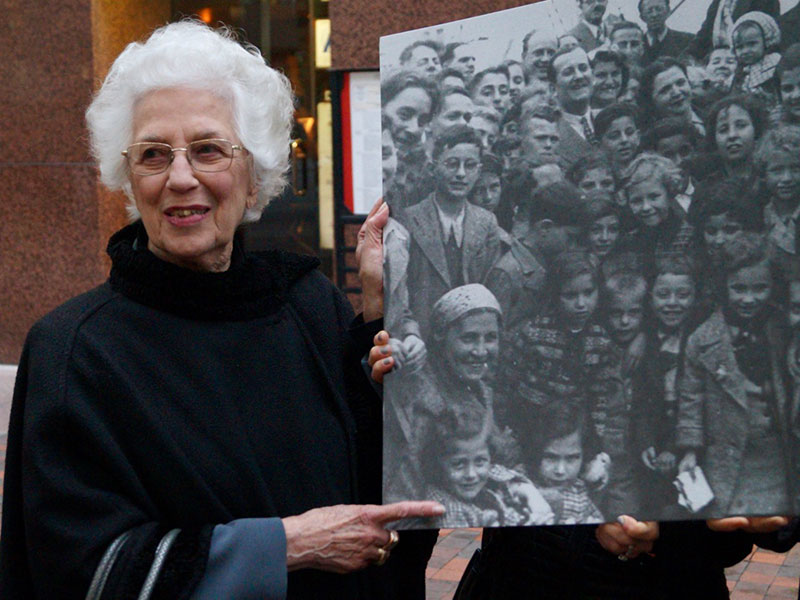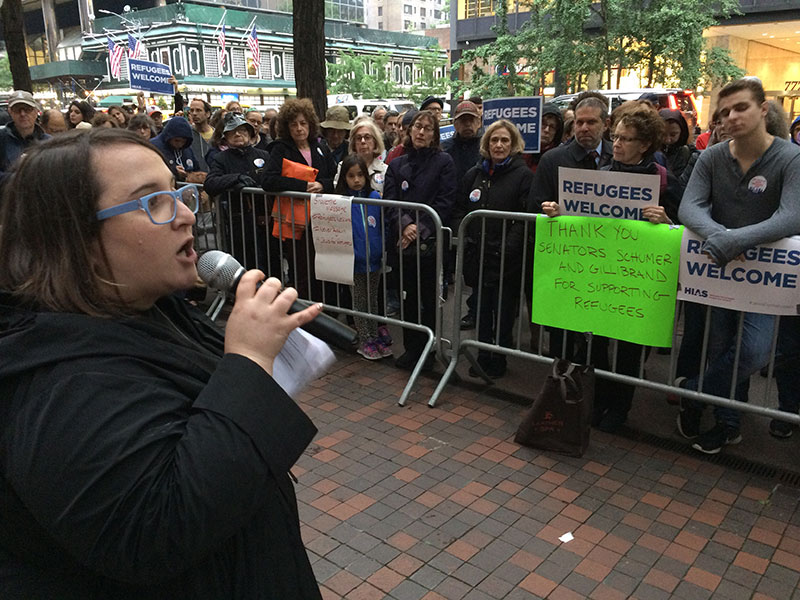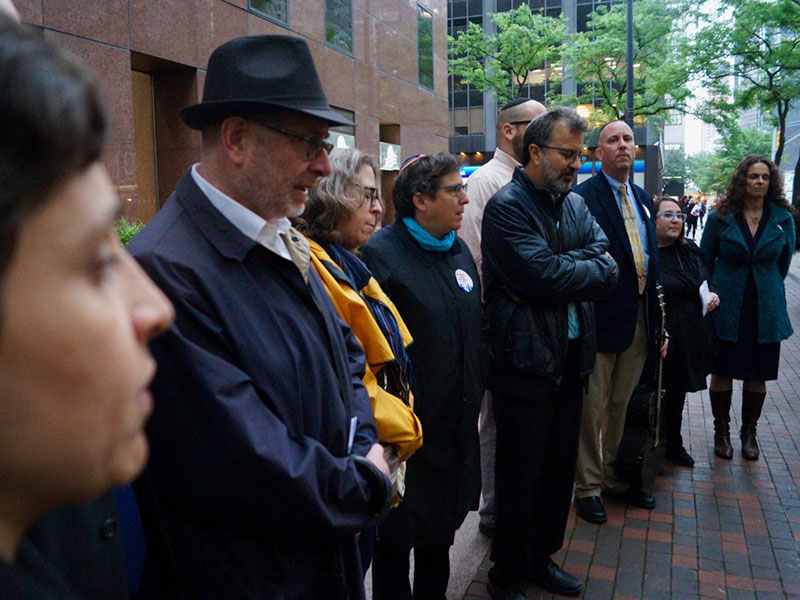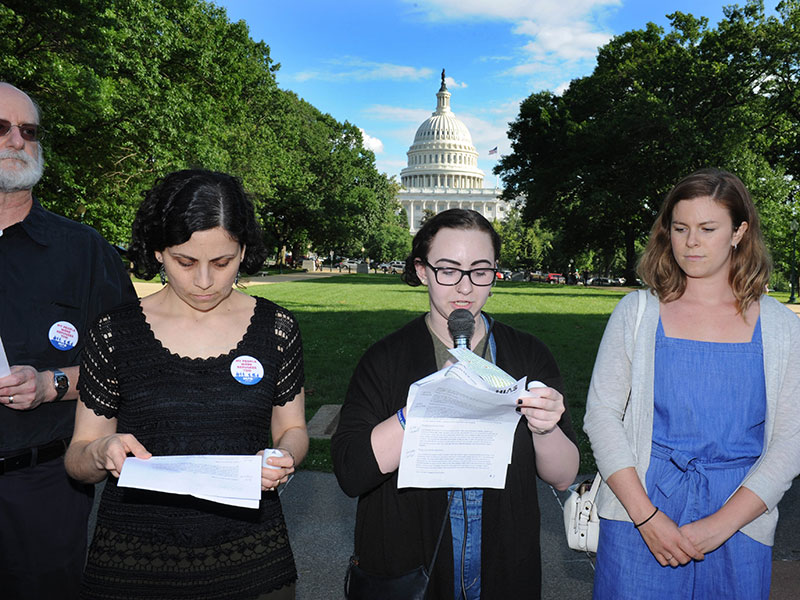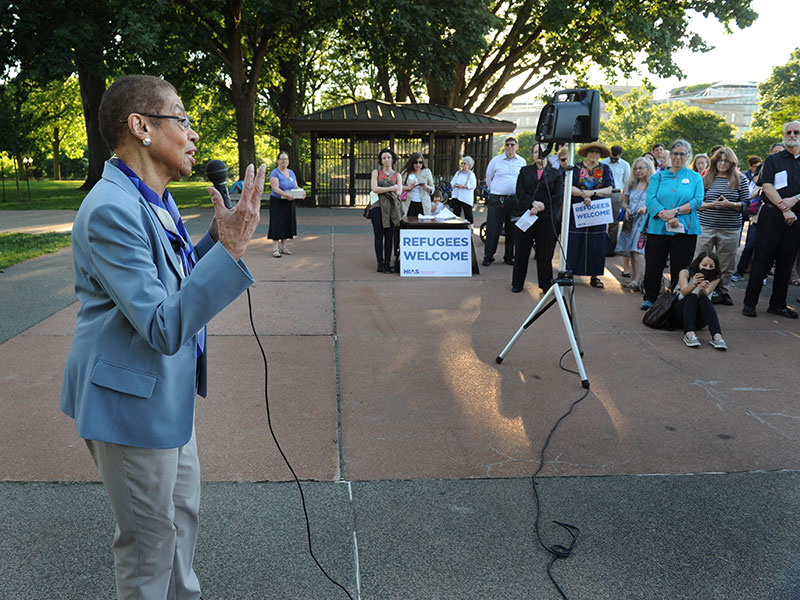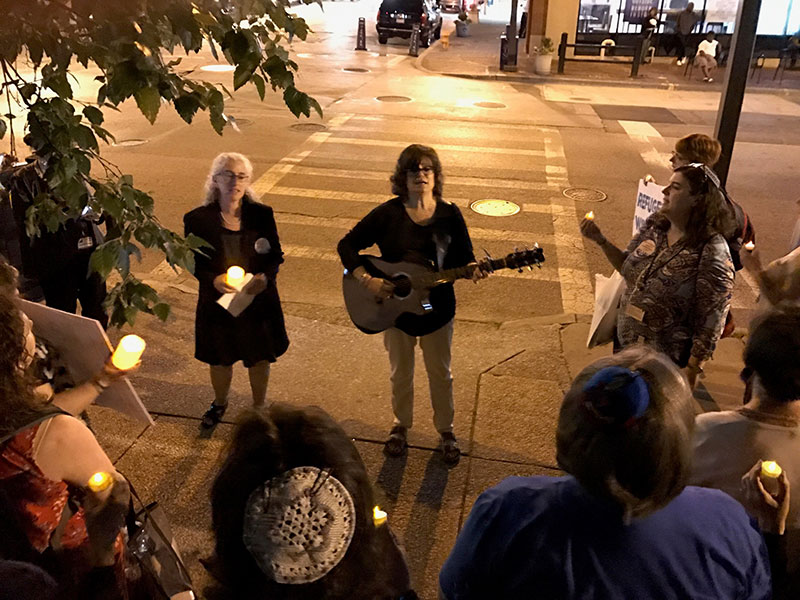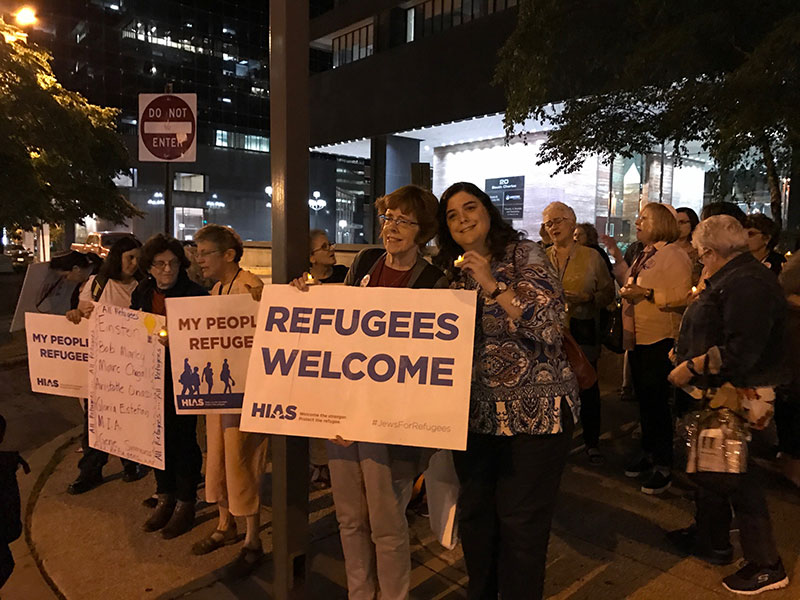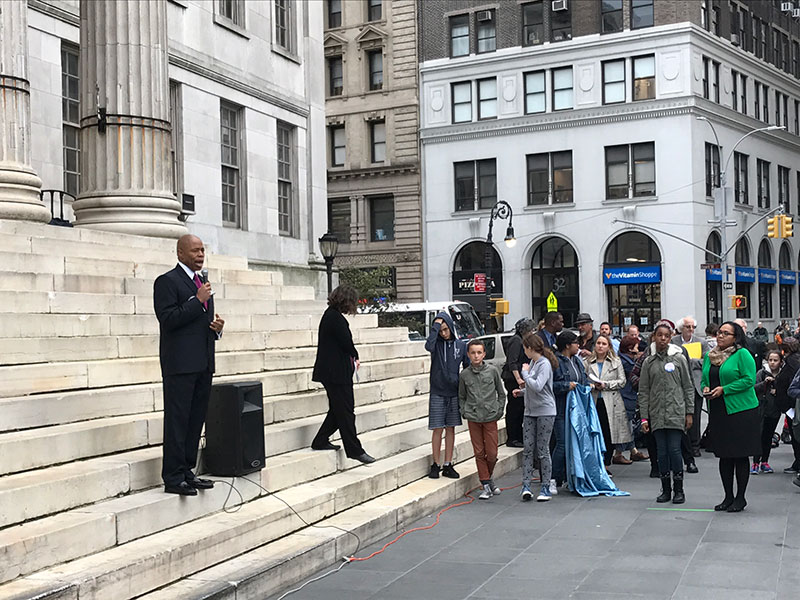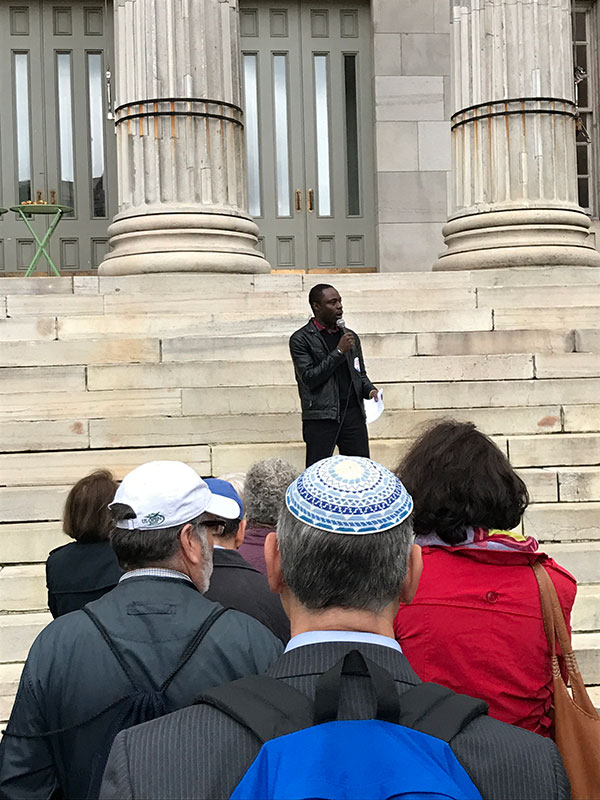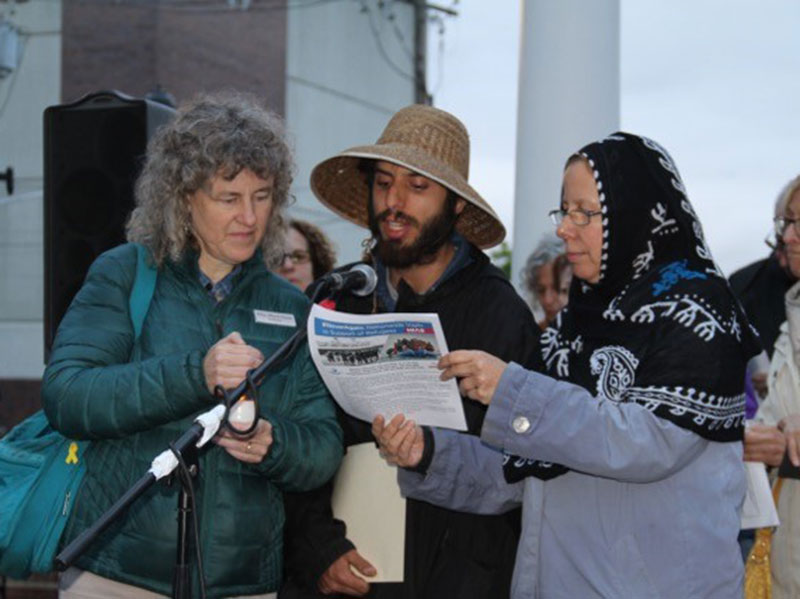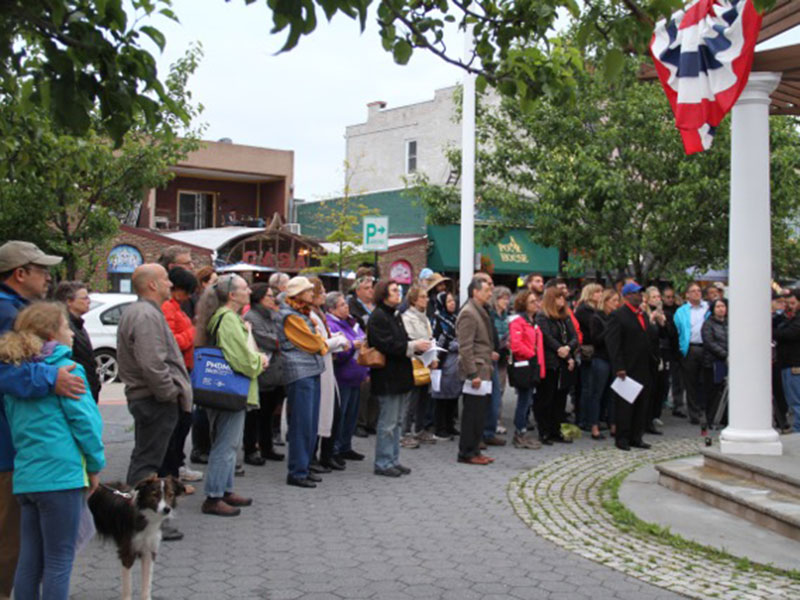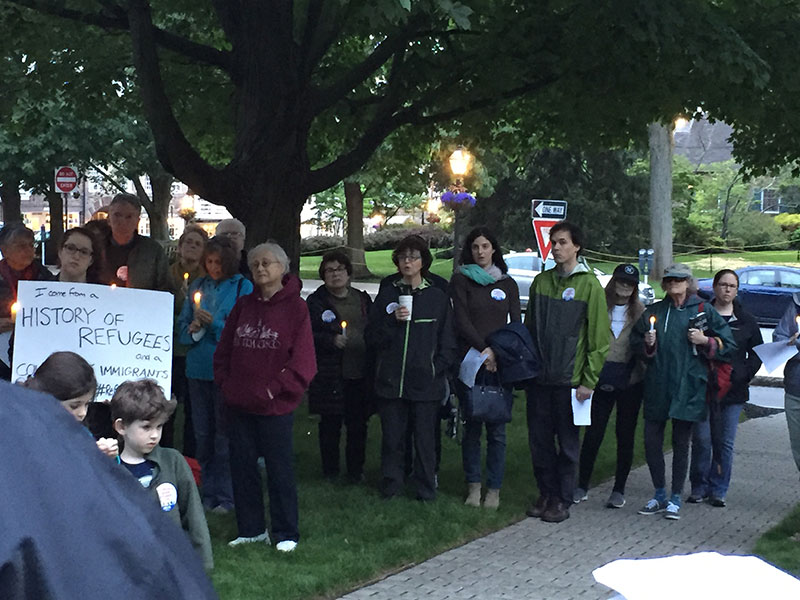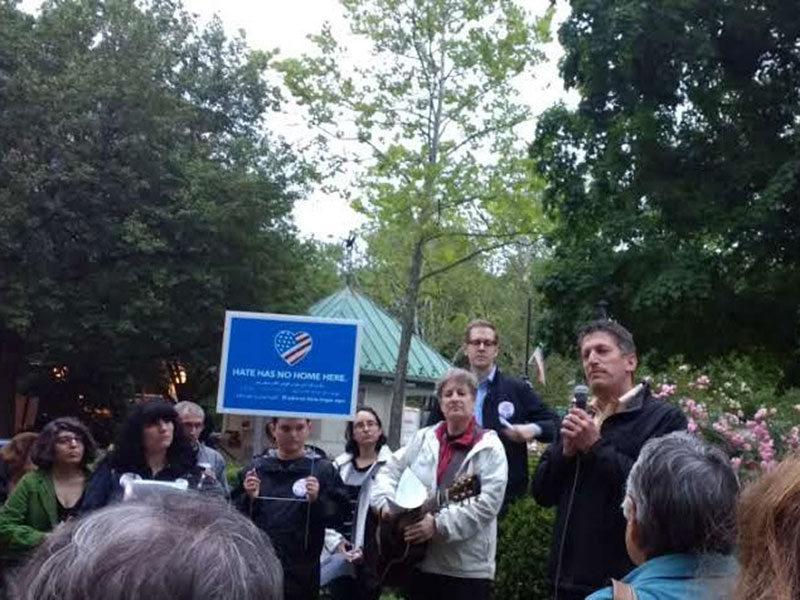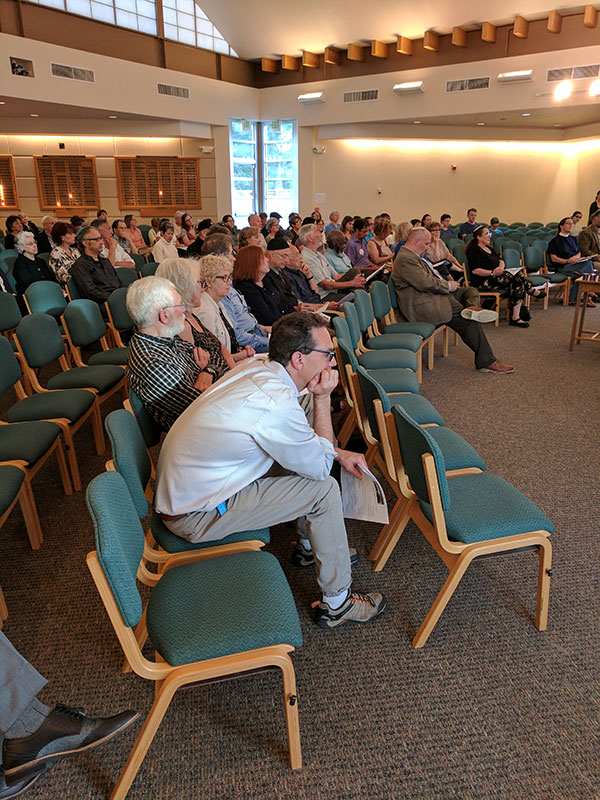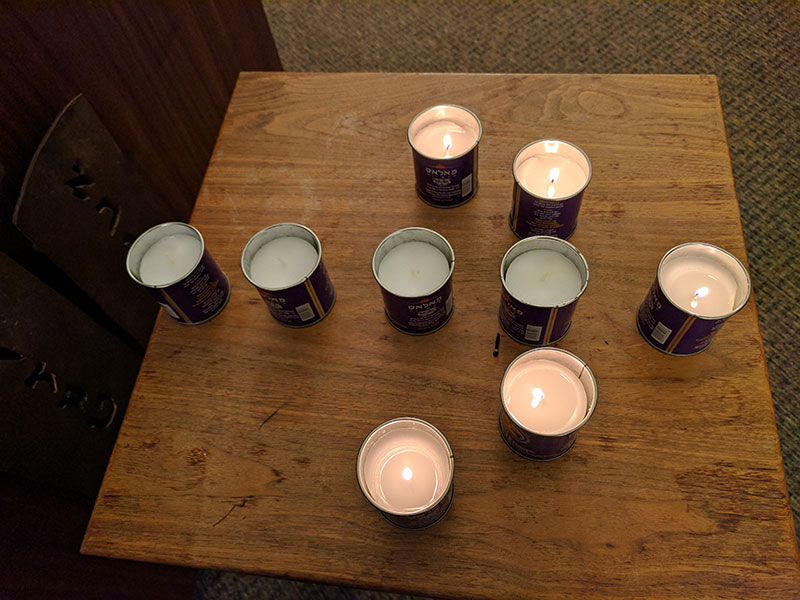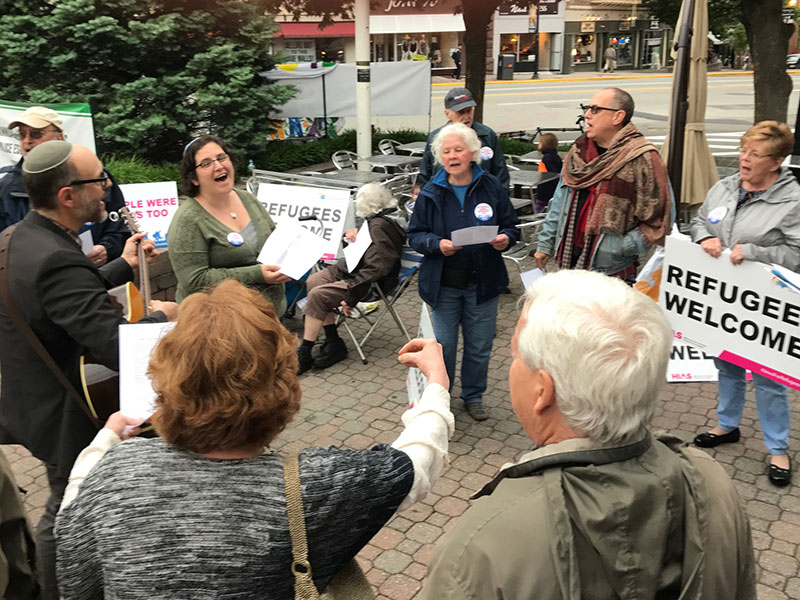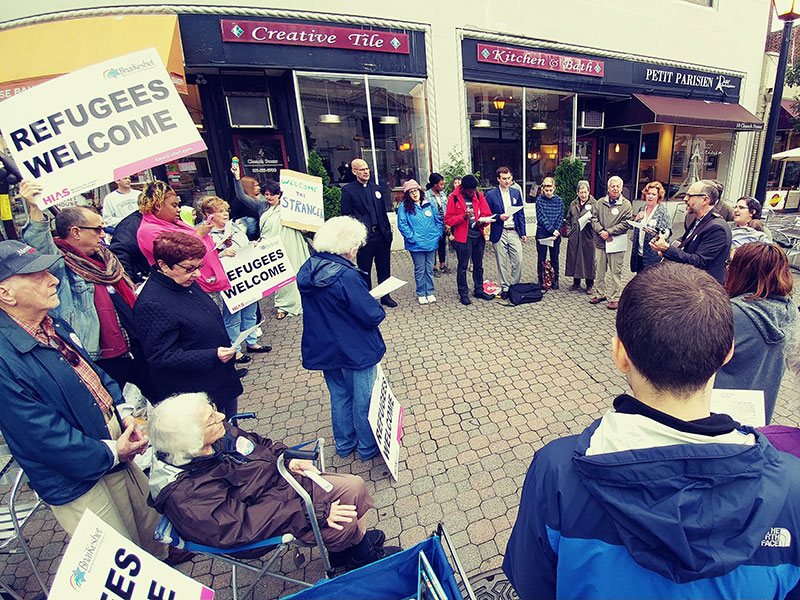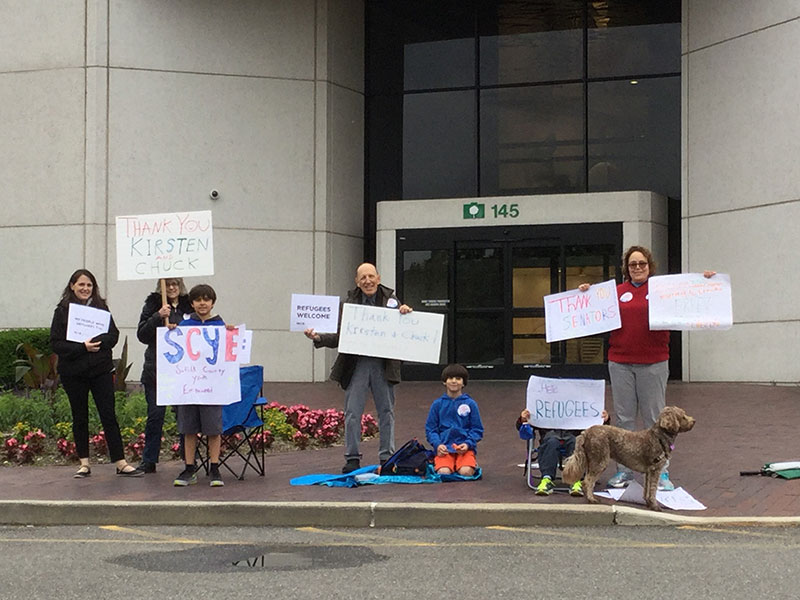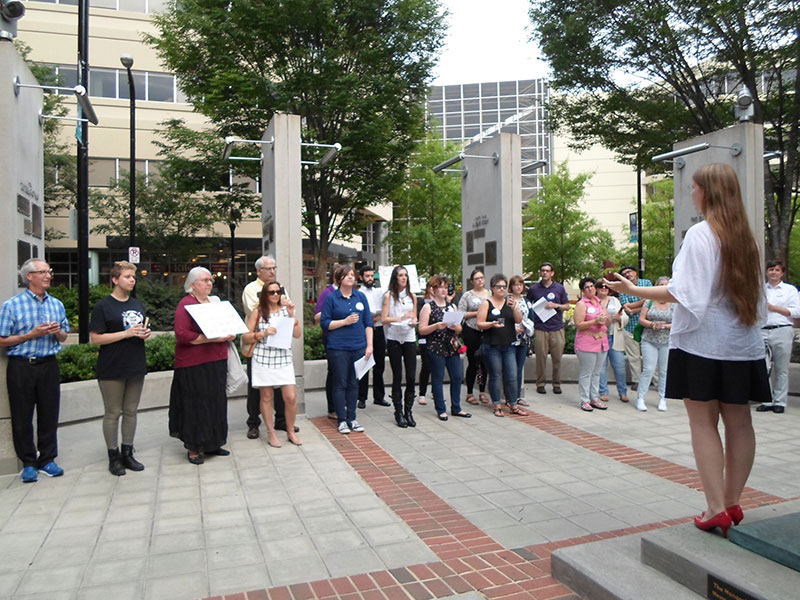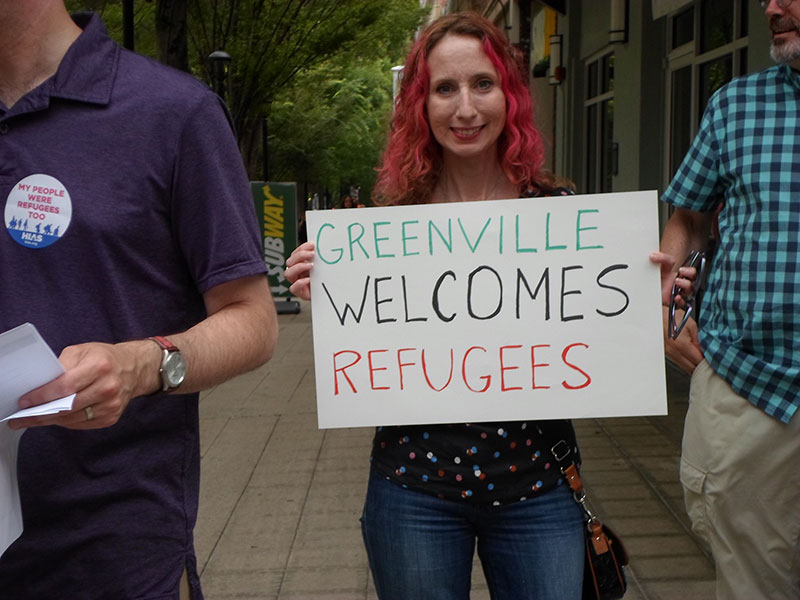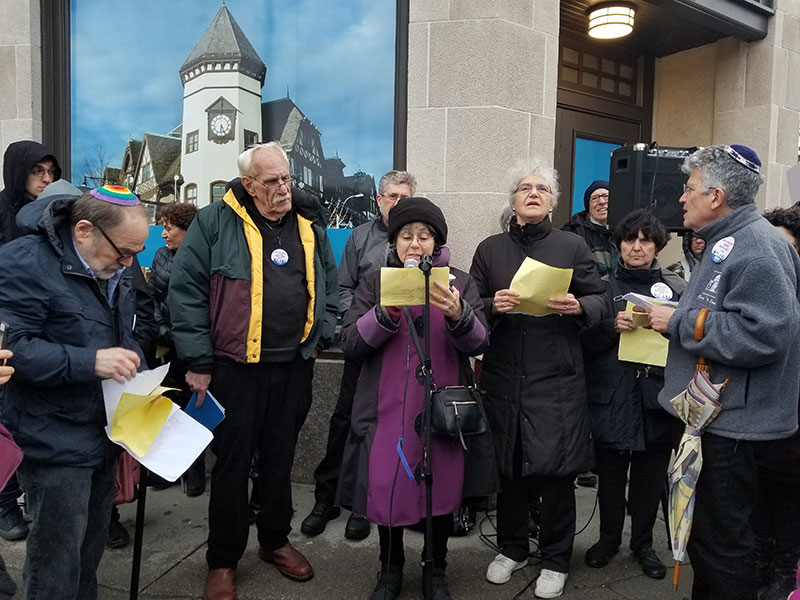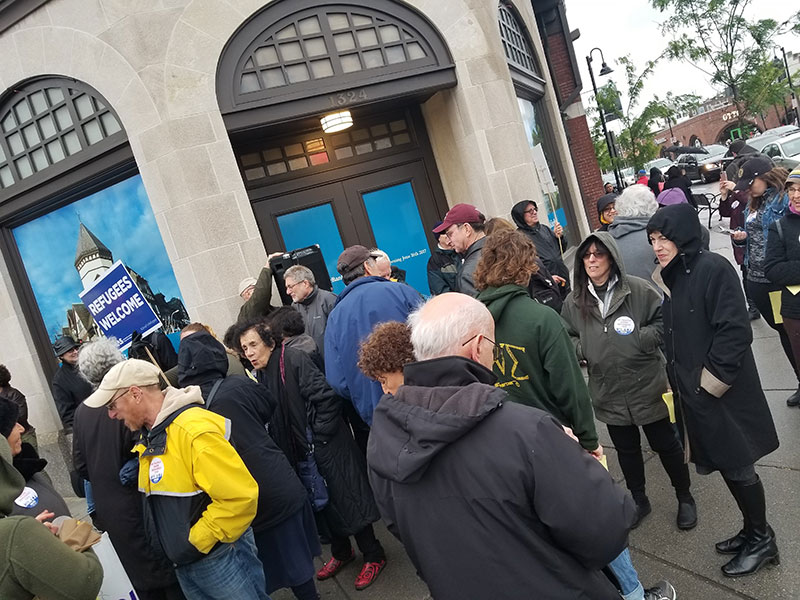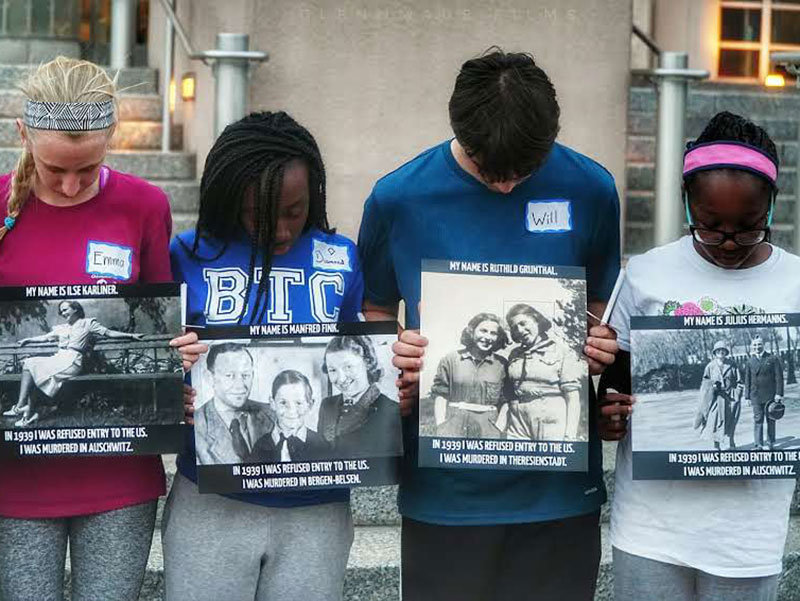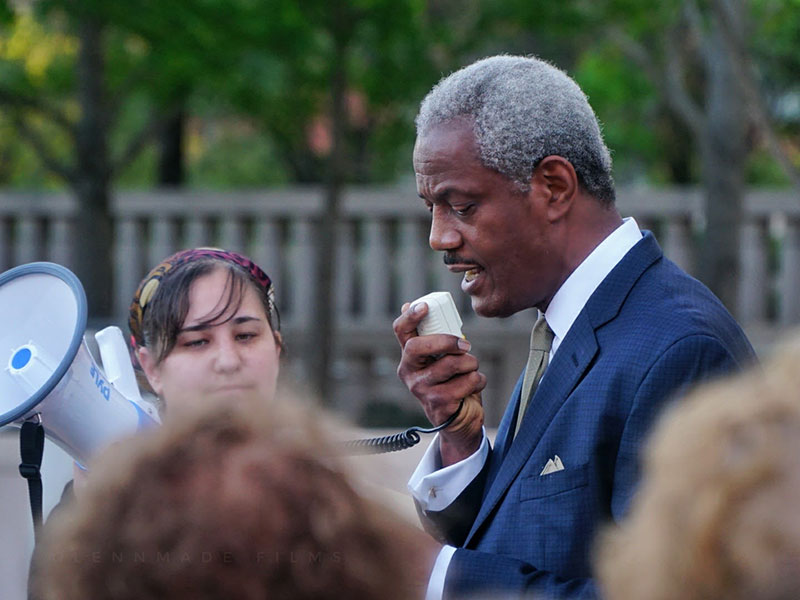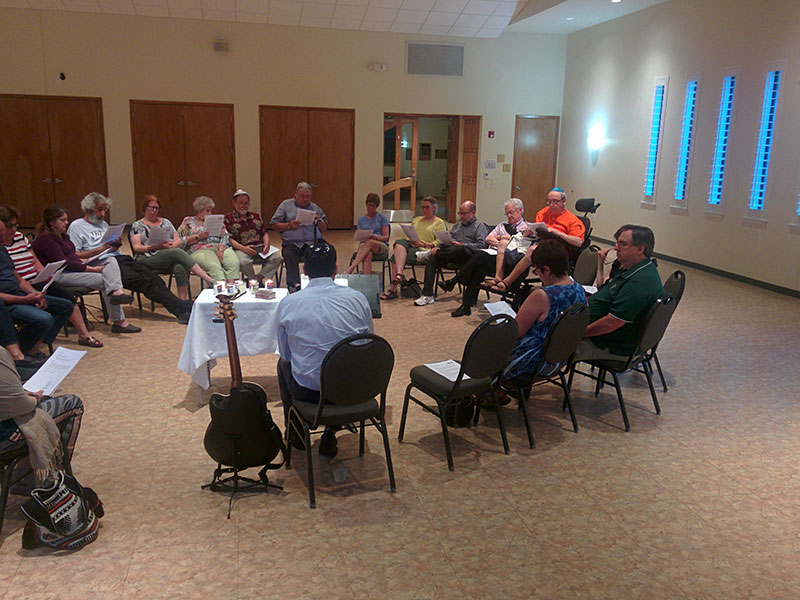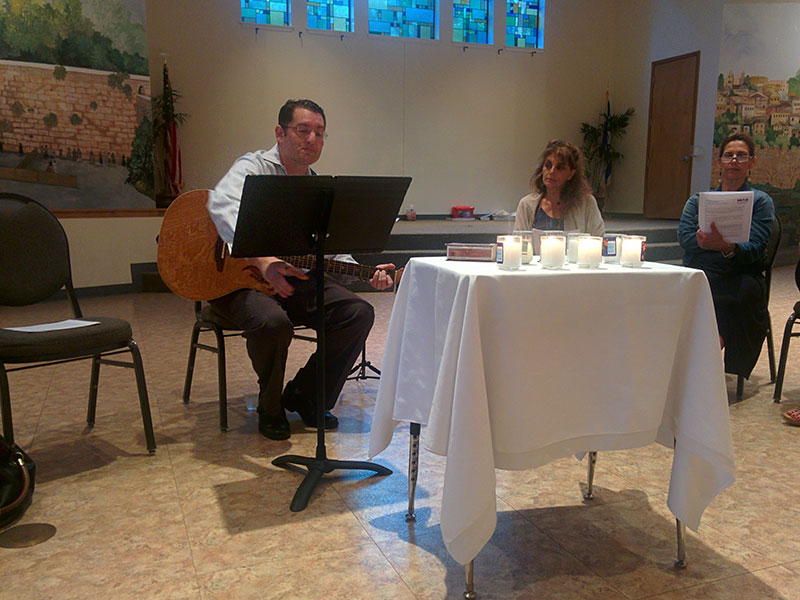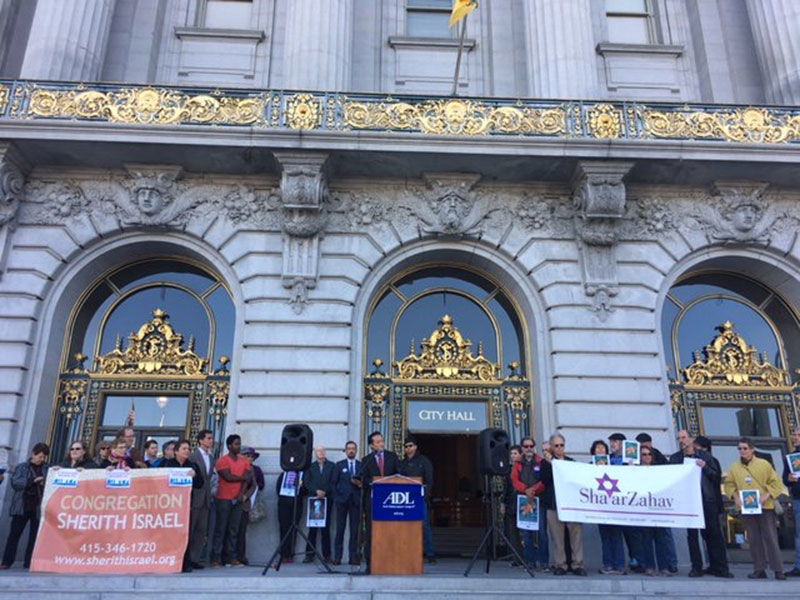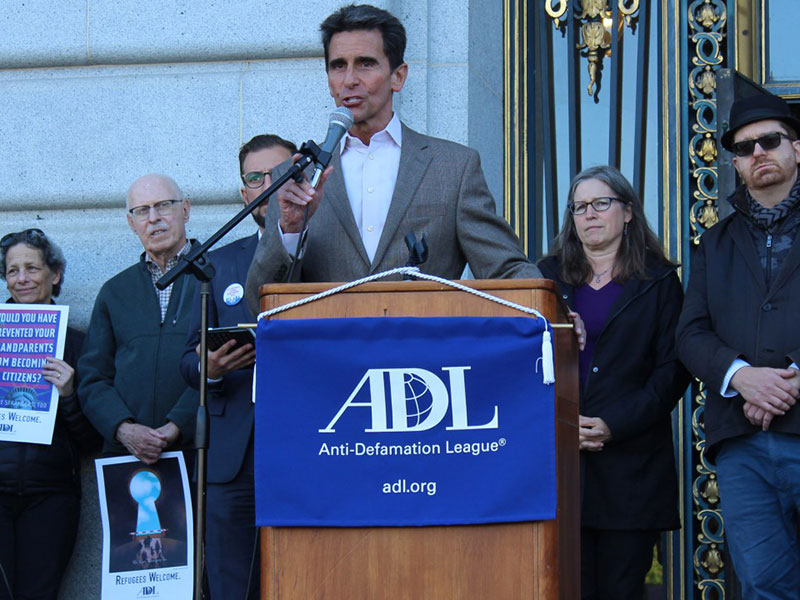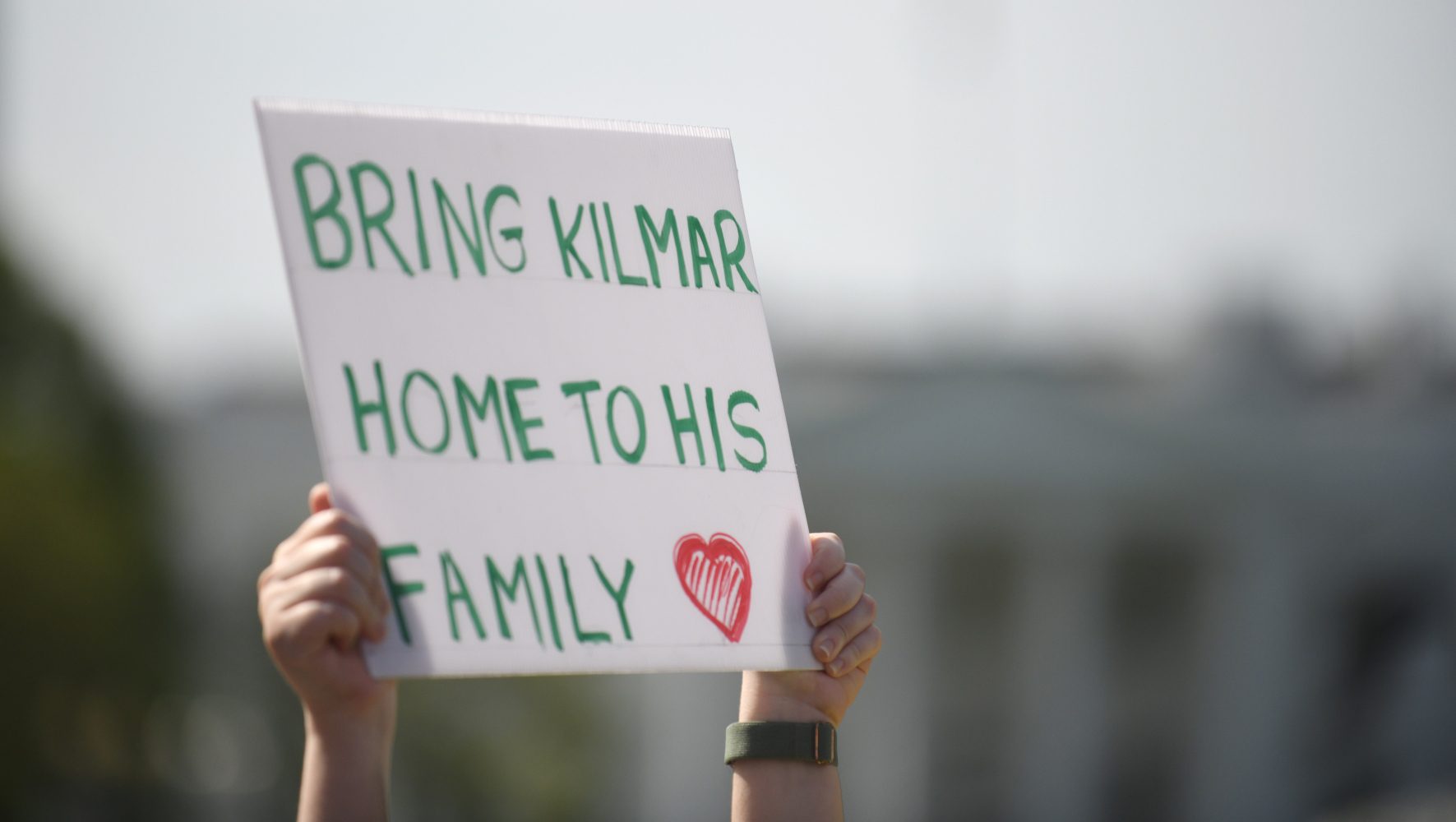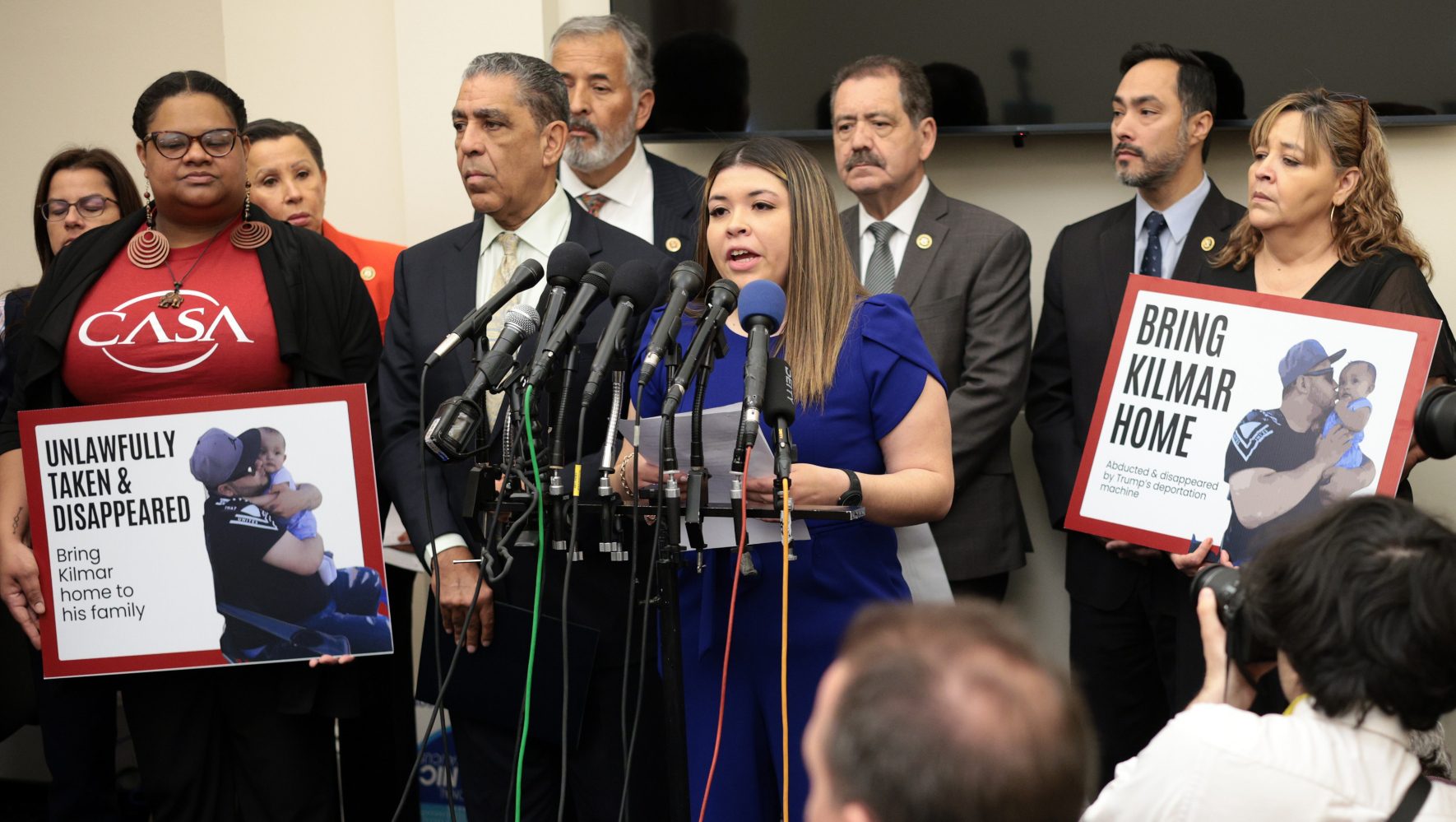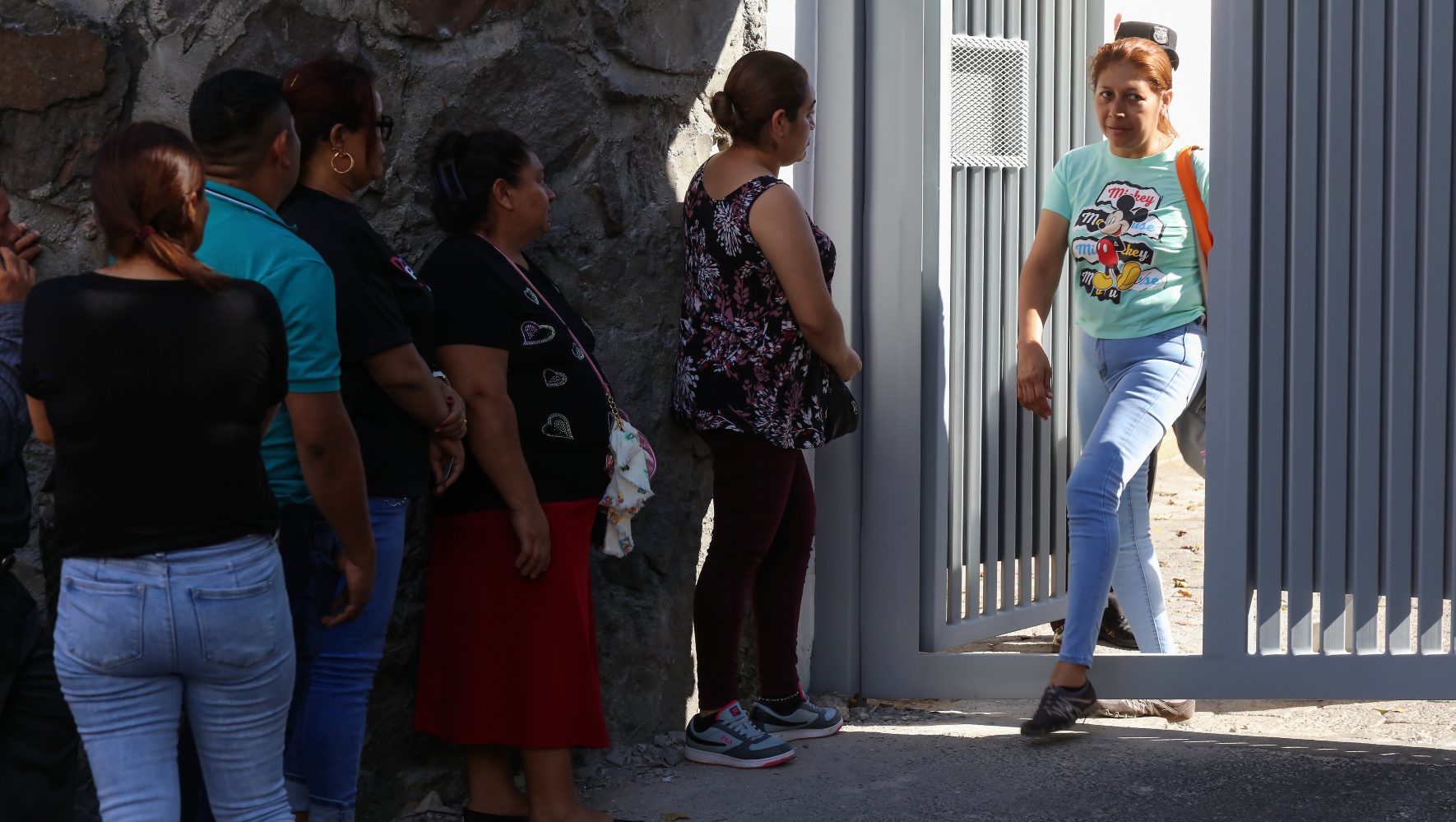SLIDESHOW: Nationwide St. Louis Vigils
By Rachel Nusbaum and Gabe Cahn, HIAS.org
Jun 07, 2017
June 6, 1939. The day the St. Louis ship was forced to turn back to Europe after the United States denied entry to hundreds of Jewish refugees fleeing the Holocaust.
Of the 937 Jewish refugees on board, 254 would be killed in concentration camps.
Those lives could have been saved, if only the U.S. had opened its doors to those refugees. On the 78th anniversary of that tragic day, vigils were held across the country to say: never again.
From Alexandria, Virginia to Woodlands, Texas, to San Francisco, California, communities gathered to light yahrzeit candles, in memory of those turned away nearly 80 years ago and to urge our country to chart a better course for today’s refugees.
“Now is such a critical time for the Jewish community to be advocating for the United States to support and welcome refugees,” said Rabbi Jennie Rosenn, vice president for community engagement at HIAS.
“The anniversary of the St. Louis being turned away from our shores is an important reminder of what’s at stake in this debate. The more than 20 vigils held across the country are just one reflection of the growing movement for refugees in the American Jewish community,” Rosenn said.
During the ritual moment in each of the vigils, participants lit yahrzeit candles in memory of the St. Louis passengers who ultimately perished in the Holocaust, and left other yahrzeit candles unlit, as a symbol of hope for the refugees searching for safety today. The message—that this country can and should do more to avoid turning away vulnerable refugees and asylum seekers—was a sentiment shared by those who turned out to the vigils across the country.
“The pressing issue of my generation will be how we treat the widow, the orphan and the stranger,” said Rabbi Steven Abraham, who organized the vigil in Omaha, Nebraska. “Do we open our hearts and our hands to those in need, or clench our fist?”
Elected officials joined several of the events. Reps. Eleanor Holmes Norton, Debbie Wasserman Schultz and Bradley Schneider spoke at a Washington, D.C. vigil held in Upper Senate park, just steps from the Capitol. Over on the West Coast, State Senator Mark Leno and Assemblymember David Chiu spoke at a vigil held in San Francisco. And in New York City, Brooklyn Borough President Eric Adams kicked off the vigil held in front of Borough Hall.
Tonight I stood with @HIASrefugees to remember the St. Louis, whose hundreds of Jewish refugees fleeing Holocaust were turned away from US. pic.twitter.com/K4v6hbqBva
— Rep. Brad Schneider (@RepSchneider) June 6, 2017
A few vigils even heard from a survivor of the St. Louis, or from the child or grandchild of a St. Louis passenger.
“My mother, Gertrud Scheuer, was 24 years old in 1939, when she boarded a ship called the St. Louis in the hope that it would deliver her to freedom,” Pam Mendels told the crowd at a vigil in Manhattan. “Close to half of the 181 St. Louis passengers who disembarked with her in Rotterdam would perish in the Holocaust.”
“Because I am standing here today, it's clear that my mother was not among them. And the story of her survival is what gives the saga of the St. Louis its deepest meaning for me. For five long years in the Netherlands, men and women of profound humanity risked their lives to save my mother. The heroes included a Catholic couple, Willem and Zus DeBruijn. They sheltered my mother for more than a year, taking her in not only as a housekeeper but also as a part of their family,” Mendels said.
To help amplify the commemoration, the viral Twitter account St. Louis Manifest, created on International Holocaust Remembrance Day, made a surprise reappearance. The account, created by St. Louis-based Jewish educator Russel Neiss, shares photos, names and short narratives for MS St. Louis passengers.
My name is Brigitte Joseph. The US turned me away 78 years ago today. I was murdered in Auschwitz #StLouisVigil #NeverAgain pic.twitter.com/RzMGOZSmi8
— St. Louis Manifest (@Stl_Manifest) June 6, 2017
“As communities across the country gather to remember the fate of the St. Louis, we in St. Louis feel the call of those refugees who lost their lives because our hearts and borders were closed,” said Rabbi Susan Talve, of Missouri’s Central Reform Congregation. “We will not let their deaths be in vain as we stand ready to welcome today’s refugees with open arms and say: never again!”
Congresswoman Nydia Velázquez read a statement honoring the 937 refugees aboard the St. Louis into the congressional record in honor of the anniversary. “At a time when acts of fear and intolerance have dictated policies to yet again shut America’s doors to those fleeing harm, we must remain committed to ensuring that America is and will continue to be a place of hope and second chances,” Velázquez said.
“As we reflect on this tragic occasion, let us recommit to ensuring that no one who is in desperate need is turned away from our country’s shores,” Velázquez urged.
